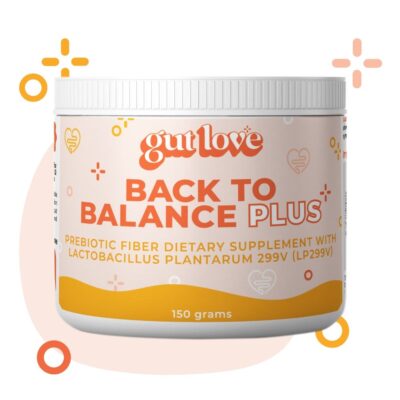Have you ever wondered what a dietitian does? Let’s dive in. If you are seeking a dietitian for support with IBD and have been curious about how we might could help – you can check out our offers here.
Malnutrition and risk of malnutrition is one of the big reasons we get refferals from Gastroenterologists. This is because malnutrition can actually negatively impact how well medications work and can make symptoms worse! Involving a dietitian is key to turning things around.¹
Did you know that upwards of 80% of Crohn’s & Colitis patients will deal with malnutrition at some point with their IBD?¹
We can help with things like:
- Reducing symptoms
- Improving energy
- Helping you identify triggers
- Giving you tools to tolerate gut friendly foods that cause symptoms
- Reducing your risk of flare up
- Helping with nutrient deficiencies
- Treating malnutrition in IBD
- and so much more
If you’re living with IBD, you know that the struggle goes far beyond the occasional gut pain. It can be a daily challenge that affects how you eat, how you feel, and how you live.
When your body reacts to food in unpredictable and uncomfortable ways, it can feel isolating and frustrating — especially when you’re trying your best to do everything “right.” Whether you’re navigating constant bloating, abdominal pain, or frequent trips to the bathroom, it’s understandable to feel overwhelmed and unsure of what to do next.
Crohn’s disease, Ulcerative colitis and Microscopic colitis are inflammatory bowel diseases (IBD) — which are chronic conditions that impact the digestive system in profound ways. These diseases are not only physically painful. But they can also take a significant toll on your mental and emotional well-being.
From managing flare-ups to avoiding trigger foods, life with IBD can feel like an uphill battle. But here’s the good news: you don’t have to go through it alone.
Working with medical professionals who understand your condition can make a world of difference. Among these professionals, a registered dietitian nutritionist (RDN) can be one of your most valuable allies. Dietitians specialize in medical nutrition therapy, which means they provide personalized guidance based on your health condition, symptoms, and lifestyle.
With their help, you can build a healthy eating routine, develop personalized meal plans, and make informed food choices that support your body — not fight against it.
In this post, we’ll explore what dietitians do, how they help people with Crohn’s disease and colitis, whether you need a referral to see one, and how they can support you in meeting your health goals. Let’s dive in.
What Does a Dietitian Do
You might be wondering if you really need a dietitian. That’s a fair question, especially if you’ve never worked with one before. Understanding what dietitians do — and how their expertise applies to chronic digestive conditions — can help you make a more confident and informed decision.
A registered dietitian nutritionist (RDN) is a food and nutrition expert who has completed a graduate degree, undergone extensive clinical training, and passed a national exam from the Commission on Dietetic Registration.
To maintain their certification, they must complete continuing education regularly. RDNs are trained in evidence-based strategies that help individuals manage a variety of health conditions, including IBD.
Dietitians can work in various settings — from hospitals and private practice, to public health departments and food service institutions. But no matter where they work, dietitians often help clients understand their bodies better. And adopt eating habits that promote healing and well-being.
When it comes to Crohn’s disease and ulcerative colitis, dietitians do much more than recommend what foods to eat or avoid. They offer comprehensive nutritional services such as:
- Creating individualized eating plans that reduce symptoms and promote gut healing
- Educating you about how food interacts with your specific health condition
- Helping you identify and manage food allergies or intolerances
- Providing support during flare-ups and remission phases
- Guiding nutritional supplementation when necessary
In short, a dietitian helps you make sense of food and nutrition in a way that empowers you to take charge of your health.
Do You Need A Referral For A Dietitian If You Have Crohn’s And Colitis?
You do not need a referral to see a dietitian — particularly if you’re looking for someone in private practice. If you are seeking to work with us specifically, we do not contract with any insurance plans so there is no need for a referral!
Seeing a registered dietitian nutritionist (RDN) is often one of the smartest moves you can make in managing Crohn’s or colitis. A dieitian with extensive training in inflammatory bowel disease can help you reduce your symptoms. They can help expand your diet and improve energy!
Case Study Example: 35 year old Sarah with Ulcerative colitis
We worked with “Sarah” for 6 months. She had been on many medications and nothing seemed to address her symptoms. Her medications were addressing the inflammation, but she still had urgency and diarrhea upwards of 10x per day. We worked on using some tools to address her diarrhea head on. We also helped her get more clear on what her triggers actually were- and somethings she thought were helping were actually adding to the diarrhea. After working with us she had solid stool 1-2x/day and urgency was completely gone. Best of all she left with more energy and added so much back to her diet that she thought was off limits.
Case Study Example: 42 year old Andrew with Crohns
Andrew had been on several medications that hadn’t worked for him yet and he wasn’t sure what to do next. He had a lot of fatigue and came to us with only a few “safe” foods. He also had multiple nutrient deficiencies that remained despite treating them. And he described how he felt as “I feel like I’m not absorbing anything”.
Our first priority was treating malnutrition with Andrew. We worked with him on making sure he was getting his basic needs met. We helped him expand his “safe” food list over then next 6 months. He made a complete turnaround. His medications were now addressing the inflammation. We were able to get his nutrients more stable and his energy had started to come back. He was so thrilled to get back to mountain biking and felt very present with his kids because he had more energy to enjoy the moment.
How A Dietitian Can Help You Meet Health Goals With Crohn’s And Colitis:
- Symptom Management: Tailoring meal plans that are gentle on the digestive system during flare-ups while still being nutrient-dense.
- Nutrient Repletion: Many people with Crohn’s and colitis are at risk for multiple nutrient deficiencies such as iron, B12, vitamin D, and calcium. A dietitian helps correct and and sometimes even prevent these.
- Trigger Identification: Dietitians can help you identify specific food allergies or intolerances that may worsen symptoms. We can even help you sort through it all when it feels like everything is a trigger.
- Help your Medications work Better: We help prevent and treat malnutrition which can help medications work better.¹ We also help support your journey to remission by bringing in strategies to reduce your risk of flare up.
If you’re looking for more guidance in day-to-day management of Crohn’s, check out this helpful resource on Crohn’s disease self-care.
And if you’re supporting a loved one with ulcerative colitis, you might also find this guide on how to support someone with ulcerative colitis helpful and compassionate.
What to Expect from Dietitians
Digestive disorders like Crohn’s disease and ulcerative colitis can be relentless. But support from a qualified dietitian can give you a clearer path forward — one that aligns your eating habits with your overall health goals.
Let’s recap what we covered:
- Having a IBD dietitian to help you reduce symptoms and improve energy can improve things significantly.
- Registered dietitian nutritionists (RDNs) that specialize in IBD are experts in providing medical nutrition therapy which is using evidence-based nutrition strategies to treat IBD
- Dietitians offer nutritional services that go far beyond food lists — we often create customized meal plans, help you navigate food intolerances and help you reduce risk for flare ups.
- A dietitian can help you meet your health goals by offering personalized care that improves symptoms and increases your confidence in managing IBD.
Whether you’re newly diagnosed or have been living with Crohn’s or colitis for years, know that there’s real help out there — and it often starts with finding the right team by your side. So you can feel empowered, informed, and nourished every step of the way.
References:
¹Bischoff SC, Escher J, Hébuterne X, Kłęk S, Krznaric Z, Schneider S, Shamir R, Stardelova K, Wierdsma N, Wiskin AE, Forbes A. ESPEN practical guideline: Clinical Nutrition in inflammatory bowel disease. Clin Nutr. 2020 Mar;39(3):632-653. doi: 10.1016/j.clnu.2019.11.002. Epub 2020 Jan 13. PMID: 32029281.







0 Comments
Trackbacks/Pingbacks